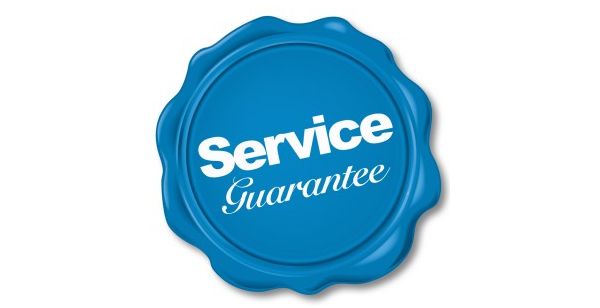Windows 8 – What the Early Reviews are Saying
Windows 8 hasn’t yet been officially released, and we already found tips pages for using it. Of course, that reflects how in the 21st century yesterday is two days too late. It also reflects how much buzz Windows 8 is generating, click here to see developer preview.
Between Windows 7 and Windows 8 the computing world changed drastically, as PCs and laptops started to get shoved aside for the even more portable tablets. The computing world is scrambling to move from software that simply works on these devices to software that is at home on them and takes full advantage of their styles and features.
Windows 8 is a coalescence of that shift, and arguably the most serious total makeover of the Windows operating system since Windows 95. It’s hard to say definitively from early reviews, since the “Wow” factor tends to drown out any more nuanced analysis of functionality. From multiple sources and the screenshots we’re seeing, though, it looks like Microsoft is making a serious bid to regain whatever place it lost at the top of the world of operating systems.
New from the ground up
Microsoft didn’t merely repackage Windows for these new formats. Everything we’ve seen says that they rethought the concept of what they want to do with their operating system from the ground up. Right from the start the user is landed in what’s being called the “Metro interface,” which loads multiple apps simultaneously in a large tile format that is easy to both read and work with. One odd feature of this is that the Desktop, which roughly maintains its old style, is now treated as just another app that you can reach from the Start Screen. This may seem a bit convoluted, but early reviews state that it becomes quickly intuitive.
RELATED: Enkompass: A Windows Control Panel For The Masses
Windows 8 introduces with its app support the notion of “contracts.” The idea is to give your apps more controlled ability to communicate with each other. The way it works is that if an app accepts a certain “contract,” then it is telling Windows that it will allow its information to be searchable by others who equally accept that contract. Expect a lot of interesting development in this area if the concept sticks.
What’s new under the hood?
There are a lot of changes as well in less used functions and in the way hardware is managed. One upgrade getting well-deserved mention is the Task Manager redesign. Processes and applications are now presented in a format that gives a much better representation of what is going on in your system. Individual statistics like CPU% are now displayed as graphs instead of just single numbers, and processes are put into chart form so that you can see CPU, Disk, Network and RAM usage all simultaneously.
An important new feature is the new ways you can restore your system. A Reset feature restores your tablet to factory condition. Slicker still is the Refresh option that leaves all of your work intact (data, apps, setting, etc.), but wipes clean the underlying operating system. An extra tool in the fight against infections is the ability to restore your operating system from approved external devices only. Windows Defender, the onboard virus shield, also loads far earlier in the boot process to make OS infiltration more difficult.
The view from the bleachers
The rabble rousers from what we read are nonetheless suspicious. That’s to be expected given Windows’ spotty OS record, and especially in the wake of the Vista train wreck. The biggest concern seems to be how efficiently this environment will function on a traditional PC. Microsoft is stating that this new OS will be multi-platform capable. Does this match the reality?
RELATED: Corel Motion Studio 3D Review
Early information about this seems to be that Windows 8 is pretty well set to work on an Intel machine, but little is known yet about how well it will fit into the ARM architecture. In fact, a number of troublesome signs indicate that support for ARM may be either deprecated entirely or else at least hard to come by. The fact that the tablets given out at demos were all Intel-based has developers a bit concerned.
Stepping back from the luster
That’s not the only thing developers are concerned about. It’s good that Microsoft is finally taking security a little more seriously, but it could come at a price. Metro apps can only be downloaded from Microsoft’s store, and inclusion there is subject to approval. This is good for the extremely security-minded, but for the “caveat emptor” crowd, which is one of the strengths of the freelance world.
The way that developers have to work with Microsoft’s coding security could also create some headaches. The first is that programming is restricted to only a few approved languages: C++, .Net 4.5 using either C# or Visual Basic, or HTML5 with Javascript. Even more irritating is that the file system is locked down from prying eyes. Microsoft of course has always been annoyingly restrictive in these ways, but in this case applications can’t get at some basic file system data. Developers might be looking forward to the joy of writing various hacks to get around bone-headed security restrictions.
No more multi-OS support?
Then there’s the smoke that Windows 8 is going to make life way more difficult for those of us who like it both ways. Early reports indicate that there are things about the Windows 8 boot mechanism that interfere with the Linux OS on machines that host both. Windows releases over the last few years have shown some serious bouts of jealousy: remember Vista’s control freak fits that prevented you from even trying to change the OS?
RELATED: The Age Old Question: Linux vs Windows Hosting: Which is the Best?
A lot of the problems associated with this seem like they might be not so much antagonistic as unbendingly “safe.” The conflicts were often the result of things that the new secure boot system wouldn’t allow. It might well be that Microsoft is putting the impetus on the developer to find a safe way to use both so that they don’t make it too easy for the novice user to screw things up. We hate to say it, but given the creative nature of Linux users coupled with the creative ability of users to find new and interesting conflicts, this could be a defensible position.
One given: This is big
Windows 8 from all measures is still at least a year away from official release, although as of a few weeks ago a developer’s release is already downloadable. Windows 8 is still too far off in the distance to make any definitive judgments of it, and it’s sure that they will be listening to feedback closely (though how much they’ll be responding to it is another matter).
One thing seems certain: this is a major development that will cause seismic shifts in the computing world. For just about anybody that works in any flavor of web or IT development, it’s hard to not give the advice that getting an early jump here is a good idea. One way or another, Windows 8 is coming, and it’s going to be big.




